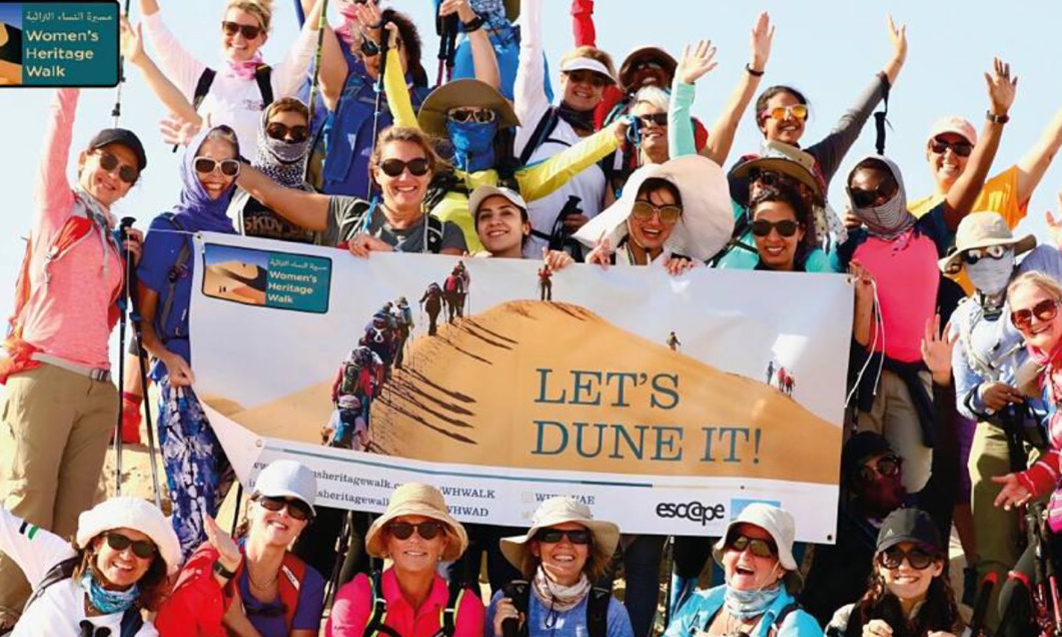Why moving more still matters: What my research on Metabolic Syndrome taught me about motivation
10 October 2025
/0x130:1500x1149/prod01/channel_3/media/middlesex-university/mdx-voices-images/Bushra-ali-metabolic-syndrome-research.jpg)
Article Written By
Bushra AliThe promise to ‘start on Monday’
As a health coach, I’ve heard it countless times: “I’ll start exercising on Monday.” The intention is always genuine, but Monday often comes and goes. When I began my research exploring how physical activity can help combat metabolic syndrome, a cluster of conditions including high blood pressure, raised blood sugar, excess waist fat and abnormal cholesterol levels, I started to see why this happens.
Metabolic Syndrome increases the risk of heart disease and diabetes. Influencing individuals to move more is not only for their health but also makes sense for global health services that are being crippled by the cost of treating preventable disease.
We live in a world where movement competes with convenience. We know exercise is good for us, yet motivation slips between busy schedules, fatigue, and self-doubt. Through both my coaching and research, I’ve learned that the challenge isn’t just about knowing we should move more, it’s about feeling capable and motivated to do it.
From coaching to research
Before stepping into academia, I spent years as a personal trainer, group exercise instructor, and health coach, helping people build healthier routines one step at a time. That experience taught me that real change isn’t just physical, it’s emotional and behavioural too.
After completing my Master’s in Exercise and physical activity for special populations and healthy ageing with Distinction at Middlesex University, my supervisor Dr Anne Elliott encouraged me to take the next step and continue exploring this field through research. That encouragement shaped the direction of my academic journey.
Today, as a Chartered Senior Practitioner in Health and Exercise registered with CIMSPA, I continue to bridge practice and science through my research, focusing on physical activity perceptions among people at risk of metabolic syndrome.
What the research revealed
One of the most eye-opening parts of my research has been listening to people’s stories. Many participants wanted to be active but didn’t always see where movement already existed in their lives.
One woman told me she walks to the market every morning but never thought of it as “exercise.” Another participant shared that he gave up on the gym because it felt intimidating, yet he spent hours gardening, an activity that offered both physical and mental benefits.
From my study, I found people often underestimate the positive impact of everyday physical activity on their health and wellbeing. The study concluded that while health professionals acknowledge the importance of physical activity for preventing metabolic syndrome, ongoing cultural and structural barriers can limit participation.
It’s important that culturally sensitive and community-based interventions along with stronger collaboration across health, fitness, and policy sectors are needed to promote more active lifestyles and reduce metabolic health risks.
These findings reminded me how deeply social and cultural factors influence motivation. For some, exercise feels like a chore; for others, it’s an expression of freedom or identity. Recognising that movement takes many forms and doesn’t always have to mean gym workouts or strict routines, can transform how people engage with it.
Earlier in my career, I developed the Emirates Desert Walk, a heritage-inspired physical activity programme that grew out of my experience completing a five-day walk from Al Ain to Abu Dhabi in 2017. That journey, which followed traditional Emirati women’s routes, inspired me to explore how cultural heritage could be used to promote health and wellbeing. The programme adapted these desert routes into early-morning group walks for older adults. Despite challenges like high temperatures and uneven terrain, participants showed remarkable resilience. After eight weeks, 78% felt more energetic, 89% reported better mood and wellbeing, and many continued walking long after the programme ended. What stood out most was how linking movement to culture and community transformed motivation - participants weren’t just exercising; they were reconnecting with heritage. It reminded me that physical activity is most sustainable when it feels meaningful, not mechanical.
Motivation is more than willpower
Motivation, I’ve realised, isn’t a fixed trait, it’s a relationship we build with ourselves. It’s influenced by confidence, social support, and even how we define success. Small, consistent actions are key to sustaining that relationship. They don’t have to be grand, it might be taking the stairs instead of the elevator, stretching while waiting for your coffee, or walking for ten minutes after dinner. These moments might seem insignificant in isolation, but over time they compound to build confidence, energy, and routine. In both coaching and research, I’ve seen how these “micro-movements” often become the building blocks of lifelong habits, sustaining motivation far more effectively than dramatic overhauls.
Keep moving forward
Studying motivation has changed the way I think about movement. It’s not just about preventing metabolic syndrome or improving fitness levels; it’s about living with intention and energy.
Whether it’s a brisk walk between lectures, a stretch break during work, or dancing in your kitchen, every movement counts. The science may be complex, but the message remains beautifully simple: moving more still matters.
About the author
Bushra Ali is a MDX Doctoral researcher in Physical Activity and Metabolic Syndrome, and Chartered Health Coach (CIMSPA).


